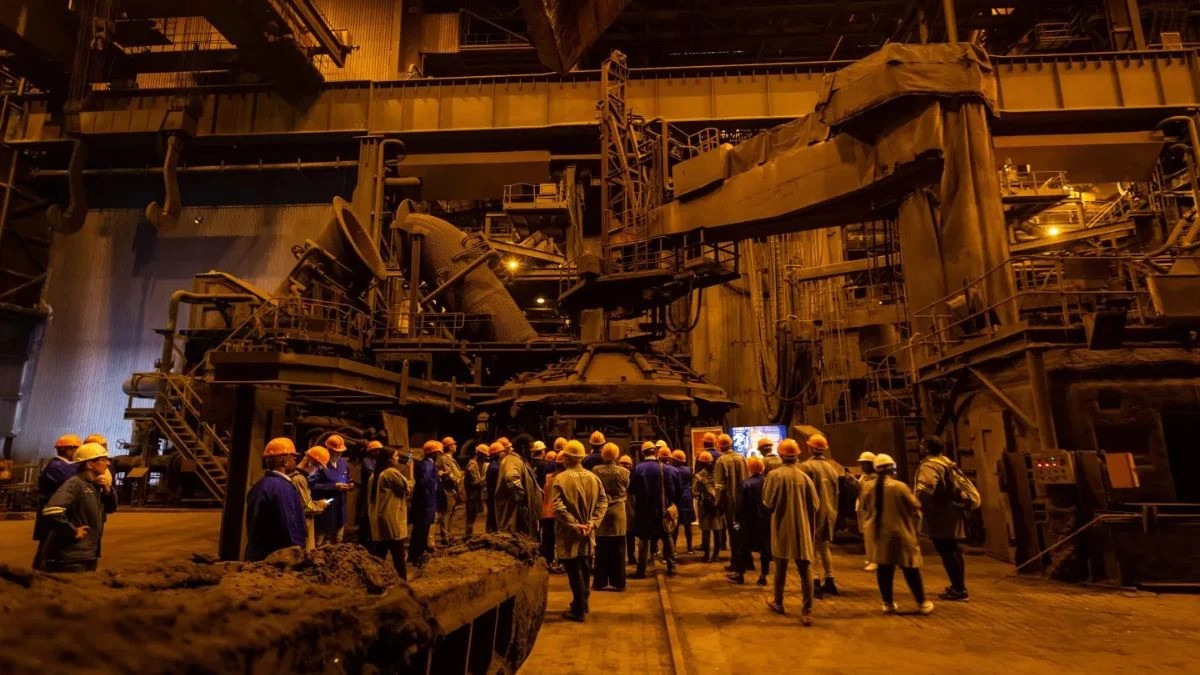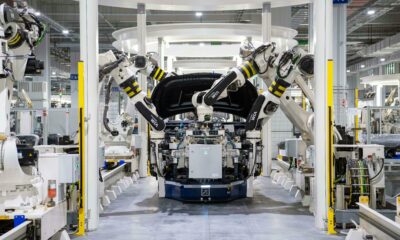Business
End of an Era: ArcelorMittal’s Closure Leaves Newcastle Facing an Uncertain Future

A devastating blow for Newcastle
For decades, the Newcastle steelworks was more than just a plantit was the beating heart of the town’s economy. Last week, that heart stopped. ArcelorMittal South Africa (AMSA) confirmed it would shut down its long steel business, a decision that will wipe out 3,500 direct jobs and devastate thousands more families and small businesses that depend on the plant’s existence.
The news has hit Newcastle hard. From the worker who clocked in at the gates for 20 years to the spaza shop owner selling vetkoek to night-shift crews, everyone feels the loss. In a town with few other industries, the closure is not just about steelit’s about survival.
How did we get here?
The story of AMSA’s decline is not sudden. For years, the company has been bleeding money, reporting losses in nine of the past 12 years. The government tried to keep it alive with bailouts: the Industrial Development Corporation pumped in R1.7 billion last year alone, and the National Energy Regulator (NERSA) even forced Eskom to give AMSA a discounted electricity tariff.
But it was never enough. The problems ran deeper than finances. Structural issues crippled the steelmaker:
-
Cheap imports flooded the market.
-
High electricity costs made production unsustainable.
-
Transnet’s rail failures disrupted supply chains.
-
And most importantly, the world simply doesn’t consume steel the way it used to.
As policy analyst Saul Levin explained recently, newer technologies and mini-mills that recycle scrap metal at lower costs have overtaken traditional steel giants like AMSA. The global market is oversupplied, and South Africa can’t compete.
Bailouts or bad bets?
The closure raises an uncomfortable question: How long should government keep propping up failing industries?
Supporters of the bailouts argued that every rand spent kept food on tables in Newcastle and gave workers a lifeline. Critics counter that the billions poured into AMSA could have been invested in industries with a future, not just a past.
With Eskom’s load-shedding crippling businesses and Transnet’s inefficiencies holding back exports, many South Africans now ask why taxpayers had to subsidize a steel giant while facing rising electricity bills themselves.
A community in limbo
On the ground, the mood in Newcastle is a mix of shock, anger, and fear. On social media, images of tearful workers leaving the plant for the last time have gone viral, sparking national debate about government priorities.
For some, the closure feels like déjà vuan echo of mining towns hollowed out after shafts were abandoned. For others, it’s a painful reminder that South Africa has been slow to adapt to global industrial shifts.
What comes next?
While the closure marks a tragic chapter for Newcastle, some experts believe it could also be a turning point. Levin and others argue that the vacuum left by AMSA could open space for smaller, more efficient steel players and even new industries if government redirects its support wisely.
But for now, that’s cold comfort to families facing unemployment in a town with limited alternatives. The long queues at the UIF office are already growing.
Hard truths for policymakers
South Africa has been here beforechoosing between political pressure to save jobs and economic realities that make those jobs unsustainable. The government is expected to issue statements, and Minister Parks Tau will no doubt point to global conditions. But as critics note, failures at Eskom and Transnet made AMSA’s life harder than it had to be.
The real test will be whether government continues to sink money into dying giants or invests in building something new.
The images of Newcastle’s workers walking away from the plant gates for the last time will linger long after the furnaces go cold. The real challenge now is not just mourning what has been lost, but imagining what can take its place.
{Source: Daily Maverick}
Follow Joburg ETC on Facebook, Twitter , TikTok and Instagram
For more News in Johannesburg, visit joburgetc.com



























